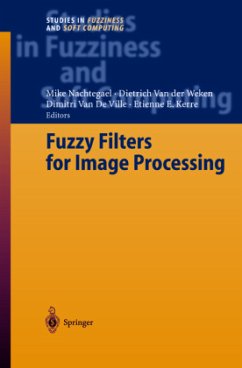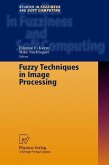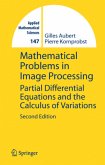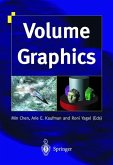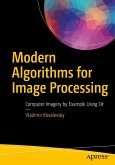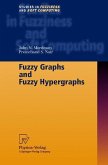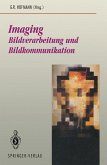This book covers a wide range of both theoretical and practical applications of fuzzy filters for image processing. The focus is on problems of noise removal, edge detection and segmentation , image enhancement and further specific applications of fuzzy filters. It is demonstrated how soft computing techniques such as fuzzy set theory and fuzzy logic can be successfully applied to this problems. Often these techniques are complementary to existing classical techniques and contribute to a more robust performance. The book is written by international experts giving an overview of the current state of the art of fuzzy filters for image processing and can be used as a reference for researchers and practitioners in the field.
The ongoing increase in scale of integration of electronics makes storage and computational power affordable to many applications. Also image process ing systems can benefit from this trend. A variety of algorithms for image processing tasks becomes close at hand. From the whole range of possible approaches, those based on fuzzy logic are the ones this book focusses on. A particular useful property of fuzzy logic techniques is their ability to represent knowledge in a way which is comprehensible to human interpretation. The theory of fuzzy sets and fuzzy logic was initiated in 1965 by Zadeh, and is one of the most developed models to treat imprecision and uncertainty. Instead of the classical approach that an object belongs or does not belong to a set, the concept of a fuzzy set allows a gradual transition from mem bership to nonmembership, providing partial degrees of membership. Fuzzy techniques are often complementary to existing techniques and can contribute to the development of better and more robust methods, as has already been illustrated in numerous scientific branches. The present book resulted from the workshop "Fuzzy Filters for Image Processing" which was organized at the 10th FUZZ-IEEE Conference in Mel bourne, Australia. At this event several speakers have given an overview of the current state-of-the-art of fuzzy filters for image processing. Afterwards, the book has been completed with contributions of other international re searchers.
The ongoing increase in scale of integration of electronics makes storage and computational power affordable to many applications. Also image process ing systems can benefit from this trend. A variety of algorithms for image processing tasks becomes close at hand. From the whole range of possible approaches, those based on fuzzy logic are the ones this book focusses on. A particular useful property of fuzzy logic techniques is their ability to represent knowledge in a way which is comprehensible to human interpretation. The theory of fuzzy sets and fuzzy logic was initiated in 1965 by Zadeh, and is one of the most developed models to treat imprecision and uncertainty. Instead of the classical approach that an object belongs or does not belong to a set, the concept of a fuzzy set allows a gradual transition from mem bership to nonmembership, providing partial degrees of membership. Fuzzy techniques are often complementary to existing techniques and can contribute to the development of better and more robust methods, as has already been illustrated in numerous scientific branches. The present book resulted from the workshop "Fuzzy Filters for Image Processing" which was organized at the 10th FUZZ-IEEE Conference in Mel bourne, Australia. At this event several speakers have given an overview of the current state-of-the-art of fuzzy filters for image processing. Afterwards, the book has been completed with contributions of other international re searchers.

